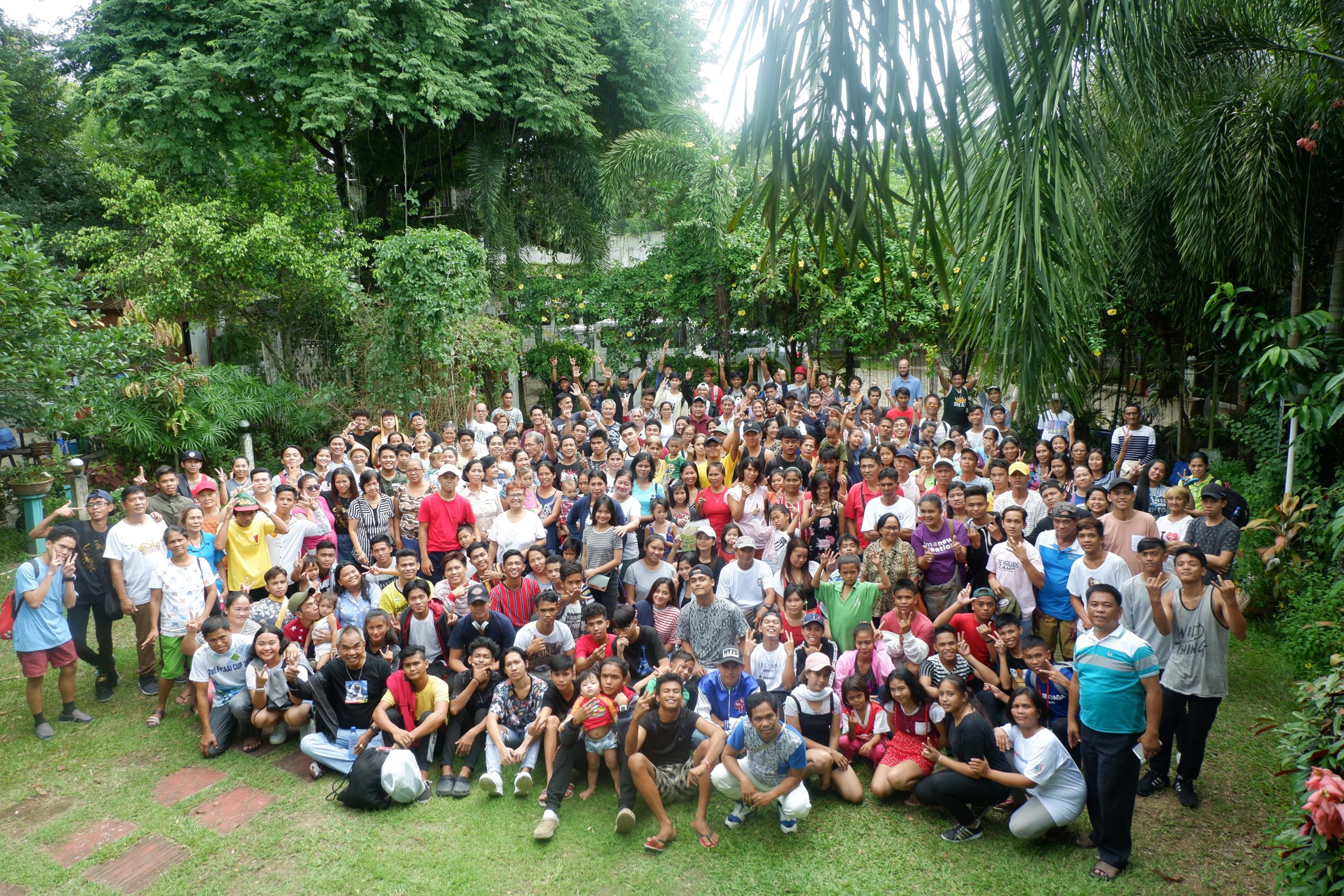Community-Based Ministry
 The Community-Based Ministry of Onesimo was launched last April 2012 as an alternative attempt to offer a way out to these youths that are above 18 years old and that Onesimo Foundation ‘s existing Residential Care Program could not accommodate. Onesimo Foundation started since 1996 and currently registered under the government made an effort of real benefit to the youth as well as sustainable, the ministry has given the building of relationships among its beneficiaries a top priority by partnering with Community-Based groups and churches passionate on reaching the poor youth at risk.
The Community-Based Ministry of Onesimo was launched last April 2012 as an alternative attempt to offer a way out to these youths that are above 18 years old and that Onesimo Foundation ‘s existing Residential Care Program could not accommodate. Onesimo Foundation started since 1996 and currently registered under the government made an effort of real benefit to the youth as well as sustainable, the ministry has given the building of relationships among its beneficiaries a top priority by partnering with Community-Based groups and churches passionate on reaching the poor youth at risk.
This will be a two-year program for the Church; Onesimo will just be a resource agency to the Church. They are helping the churches and volunteers in terms of capacity building and other resources to deliver the program of the Church among the youth. The Programs and Services are based on the Mission Statement of Onesimo to reach, rehabilitate, equip, and mobilize.
The duration of the Program of Church-Based Ministry is two years per Church. However, it is renewable every two years depending on the results of the evaluation. Every Church has a maximum of three terms.
1. Procedures in Recruitment of Church Partners:
1.1 Networking with the Urban Poor Churches and Pastors
Onesimo‘s major target areas are all poor urban communities, which are either squatter or relocation sites. The local Church in the area is the primary target; thus, it is necessary to tap its pastors and leaders to extend its services to urban poor youth at risk and their families.
1.2 Church and Community Visit
A visit to the Church and study of the community profile is necessary if the beneficiaries are qualified for the program as well as assess if the Church will be trained and competent to handle the application.
2. Criteria of the CBM Church partner
- The Pastor is willing to reach out to the youth at risk in the Community and nearby barangays.
- Urban poor Church or any Christian organization/church engaged in the weak urban ministry.
- The Pastor and its leaders have a burden for the youth
- The Church has existing out of school youth (OSY) ministry
- An available potential worker from the Church who will focus on this ministry. Preferably the worker is a certified instructional manager of Alternative Learning System (ALS)
- The whole Church is willing to accommodate the program
- The Church agrees to the Evangelical Statement of Faith
3. Process of Selection
- Preliminary talk of the Pastor to the Director
- Submit Letter of Intent to the CBM office
- CBM team visits the Church and the Community
- Discuss the officers and elders of the Church
- Submit the following Documents
- Church Profile, Pastors Profile and Volunteers profile
- SEC Registration
- Baranggay Certification that the Church is in good standing
6. Church orientation on the CBM program
7. Memorandum of Agreement Signing
- It‘s a one-day activity familiarizing the church leaders on the ministry of Onesimo and strengthening of its partnership with the local Church.
4. The assistance of OFI to the Church
- Basic needs per youth trainee (food 25/meal, medical and dental as needed only and partial)
- Skills training assistance for the youth trainee
- Mobilization assistance for the youth trainee
- Cell phone load to the Church. (P150 every month)
- One time help for Church Repair. (P 2,500 one time love-gift)
- Monthly Electricity and Water bill combined (P1,500 monthly)
- Sports Uniform during Annual Sports Fest (P650/player x 12 trainees from the Church)
- Liquified Petroleum Gas support for meals (P500 monthly)
- Clothing twice a year. June (P500) and December (P1,000)
- Capacity building for Partner Church‘ Pastor and volunteers. Monthly Fellowship and Evaluation Retreat
5. Grounds for Termination
- Diversification of Funds or excessive personal use of OFI‘s finances.
- Inefficiency or negligence of the Church on its duty to the trainee. (Mediocrity)
- A case of exploitation or abuse of authority
- Immoral conduct or indecency such as fornication (pre-marital sex), being involved in homosexuality (or lesbianism) as well as sexual mistreatment between Pastor/church worker and trainee
- Dishonesty and falsification of OFI documents and records.
- Assaulting or attempting to inflict physical injury and with the intention to harm the program participants
- Damaging or destroying any OFI‘s integrity by inimical acts including utterances which could cause shame on OFI
- Using the OFI‘s name in private transactions or business for personal gain.
